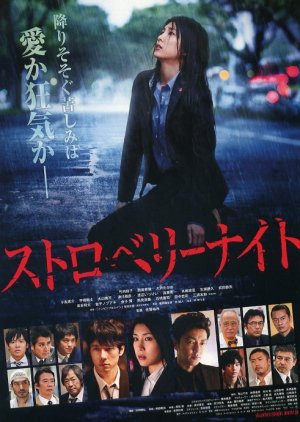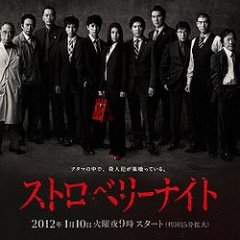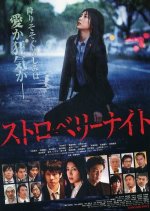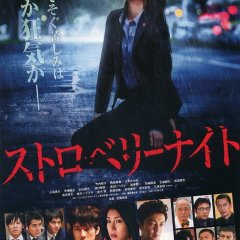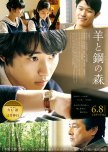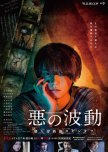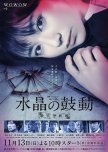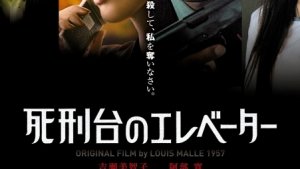 ChaNee's Weekend Movies
ChaNee's Weekend Movies Himekawa Reiko investigates a homicide involving the murder of a gang member. The police suspect the murder came about from gang disputes, but the evidence is lacking, and the case is deadlocked. A phone call arrives and the caller claims Kento Yanai is the murderer. A superior officer informs Reiko not to investigate Yanai Kento. Reiko becomes suspicious and investigates the man on her own. She then meets high-ranking gang member Makita Isao. They investigate the case together and become attracted to each other. (Source: AsianWiki; edited by kisskh) Edit Translation
- English
- magyar / magyar nyelv
- dansk
- Norsk
- Native Title: ストロベリーナイト
- Also Known As: Sutoroberi Naito
- Screenwriter: Tatsui Yukari, Hayashi Makoto
- Director: Sato Yuichi
- Genres: Mystery, Crime
Cast & Credits
- Takeuchi Yuko Main Role
- Osawa Takao Main Role
- Ukaji TakashiIshikura TamotsuSupport Role
- Miura TomokazuWada TohruSupport Role
- Takeda TetsuyaKatsumata KensakuSupport Role
- Tsugawa MasahikoKunioku SadanosukeSupport Role
Reviews

This review may contain spoilers
(details will be left as a spoiler comment below)A high budget production with a great and well-acted cast and fantastic cinematography. The film is shot beautifully, a far cry from a network television budget, and as someone has mentioned before, really plays up the darkness and vengefulness in Reiko. Tonally, the film is much more grim, and the conclusion complements that.
I thoroughly enjoyed the Strawberry Night SP and the series, and although I enjoyed this movie as a standalone, I felt that it offered no closure to any of the character arcs. I understand that it's a film and that the story's supposed to be tightly woven. I also understand that there's another SP after this that I've yet to see, so maybe the film isn't even supposed to be the end.
Perhaps others may feel differently, but I wasn't very happy with the outcomes in the film because of their inconsistencies with the series. Things came to end but I felt as though nothing was resolved, which is why it works as its own movie but I would rate it much lower as a sequel.
Anyway, that being said, I did enjoy the movie. It had great action sequences and it was well paced. I do agree that the timeline was a bit out of whack but I was engaged throughout and didn't feel that anything was excessively contrived.
Was this review helpful to you?

Strawberry Night's Movie-Sequel, "Invisible Rain" Requires The Preceding Series and 2010 Special.
While I love Strawberry Night as a whole, I think this film is the weakest portion of the story; it is a decent bookend to the narrative, but it's missing some of the key emotional cruxes of the series.I think this film should have been much more fleshed out in terms of character interactions; particularily, more scenes between Himekawa and Isao (the anti-hero guest character for the movie) would've heightened the quality of the story. As it is, the case presented in "Invisible Rain" is probably the weakest out of all the investigations the Strawberry Night characters have participated in. There's less of a focus on the motivation of the killers or upon Himekawa's personal feelings on the crimes she's investigating. The whole plot comes off as unintentionally dull. On the plus side, this film is as I said earlier: a bookend. It completes Himekawa's story arc that starts in that 2010 special.
Throughout the series, Himekawa is reprimanded by her fellow division commanders in various ways and by the end of this film you can see small spurts of real growth in her character. There are very subtle moments where Himekawa directly admits that she has been too headstrong and isolated in past investigations. This film needed way, way, way more subtle moments in that manner. The investigation process that Himekawa takes part in is the real attraction of this series. Specifically, the workman-like fashion in which this police procedural series is written emphasizes meetings, planning and interviews. It is, strangely, less concerned with aestheticising clues, evidence or perplexing mysteries. If you don't want to see people walking the streets asking questions, you're probably watching the wrong show! These small conversations are the strongest reason for watching the TV show, specials and this movie (even though the film is lacking in this conversational aspect compared to the previous entries). Yes, there are criminal cases being investigated by Himekawa's team, but the intricacies of maneuvering around her colleagues, her superiors and her own investigation team are always what drives the narrative to interesting places.
All that said, the key thing this film is missing is a climactic interrogation scene where Himekawa confronts the suspect in an emotional manner; I think the climactic scene we were given for this film is quite the cop-out in this respect. No pun intended, it just came to my mind!
Without spoiling too much, the main takeaway from this movie is that people who share deep, emotional trauma can sense and "see without seeing" that trauma in each other. That is why it is called "Invisible Rain"; I think the concept was adequately done, but this film's thematic content is nowhere near the superb closer to the television series "Soul Cage" or the pivotal flashback sequences in the 2010 special. If you don't want to watch the entire series (or if you've accurately sensed that I'm NOT RECOMMENDING you watch this movie as a blind watch), I'd highly recommend watching the 2010 special and then perhaps the last three episodes of the television series (Episodes 9, 10 and 11).
This movie may disappoint you; the television series will not.
Was this review helpful to you?
Recommendations
There have been no recommendations submitted. Be the first and add one.

